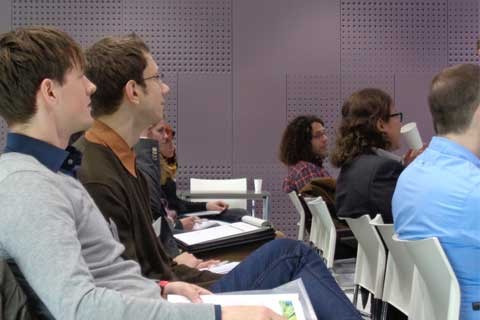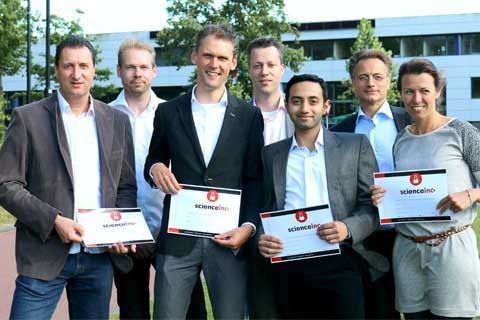As we announced in our first blog, we will discuss some of the Pros and Cons of engaging in valorization in the coming weeks. Today we’ll discuss a key issue in valorization: Money.
Some researchers complain that their research can’t be sold, and that therefore they can’t ‘valorize’. They follow the phrase ‘Kennis, kunde, kassa (knowledge, capabilities, cash)’, which implies that more knowledge should lead to economic growth. It still seems to be the prevalent justification of science spending even though the Dutch Central Planning Bureau recently showed that the link between economic growth and science heavily depends on context and method. In other words, they couldn’t find clear indicators that public spending on R&D led to more economic growth. There still appears to be an implicit hierarchy’ (De Jong et al., 2015) in valorization, where collaboration with companies is valued more than cooperation with societal organizations. So then why do so many people insist that valorization is all about the money?
One of the reasons is that money is quantifiable for policymakers and controllers. Many indicators of valorization have the strong financial connotation: Licensing, startups and third-party contract research all have financial returns for the institution. How do you quantify the impact of an idea, a philosophical argument or a protocol for social conduct? That impact may be dependent on other variables and very diffused over time and place.
Monetized products and services, on the contrary, are more visible: they are often of the appealing tangible kind. Additionally, when they’re turned into profitable businesses they also yield a nice return for the researcher involved, for most an enviable position. And of course: any money coming in is also directly useful for the university or academic group.
Thankfully, our policymakers are smarter than this. They’ve recognized the societal value generated by science, and have explicitly put ‘societal value’ on par with ‘economic value’. Furthermore, reports leave ample room for soft valorization ‘narratives’ – qualitative descriptions of how impact came about – and introduced quantitative descriptions that are broader than just the financial ones.
It is therefore extremely odd that still such a large part of the academic community itself thinks about money when someone utters valorization. Especially since both in society and amongst academic peers, scientists that do well in terms of economic success run the risk of being seen as moneygrubbers by peers and society. Klaas Hellingwerf and André Krouwel mention how their own colleagues treated them different.
Krouwel: ‘Don’t expect a red carpet or anyone getting your coffee when you’re involved with valorization in the social sciences’.
Whilst there are systematic issues in how valorization is interpreted by society and even the academic community itself, it is policymakers that are showing their good intentions
by explicitly delivering the broad interpretation. Our current minister is even explicitly breaking with the past. Our policymakers repeatedly and convincingly proclaim that valorization is about creating value for society, economic or otherwise. It is time for academics to embrace this dogma of policymakers: Valorization values equally the economic and societal impacts of research.






